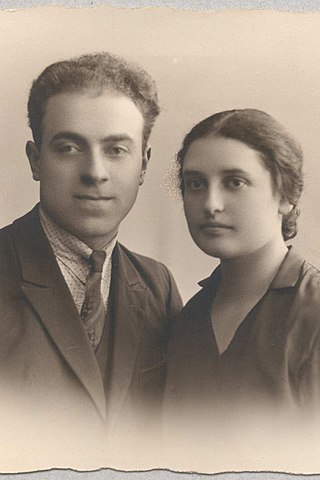
The International Court of Justice, sometimes known as the World Court, is one of the six principal organs of the United Nations (UN). It settles disputes between states in accordance with international law and gives advisory opinions on international legal issues. The ICJ is the only international court that adjudicates general disputes between countries, with its rulings and opinions serving as primary sources of international law.

The Child Online Protection Act (COPA) was a law in the United States of America, passed in 1998 with the declared purpose of restricting access by minors to any material defined as harmful to such minors on the Internet. The law, however, never took effect, as three separate rounds of litigation led to a permanent injunction against the law in 2009.

The International League Against Racism and Anti-Semitism—or Ligue internationale contre le racisme et l'antisémitisme (LICRA) in French—was established in 1927, and is opposed to intolerance, xenophobia and exclusion.
"La France" is a 2001 song by the French hip hop band Sniper. It addresses perceived injustices committed against minorities by the French political system and the opinion that even though there is a large number of people of African and Arab origins in France, they are poorly represented in politics. The song's chorus displays the message in a rather strong way:
La France est une garce et on s'est fait trahir Le système, voilà ce qui nous pousse à les haïr La haine, c'est ce qui rend nos propos vulgaires On nique la France sous une tendance de musique populaire On est d'accord et on se moque des répressions On se fout de la République et de la liberté d'expression Faudrait changer les lois et pouvoir voir Bientôt à l'Elysée des arabes et des noirs au pouvoir

Nazi memorabilia or Third Reich collectibles are items produced during the height of Nazism in Germany, particularly the years between 1933 and 1945. Nazi memorabilia includes a variety of objects from the material culture of Nazi Germany, especially those featuring swastikas and other Nazi symbolism and imagery or connected to Nazi propaganda. Examples are military and paramilitary uniforms, insignia, coins and banknotes, medals, flags, daggers, guns, posters, contemporary photos, books, publications, and ephemera.
Ligue contre le racisme et l'antisémitisme et Union des étudiants juifs de France c. Yahoo! Inc. et Société Yahoo! France is a French court case decided by the Tribunal de grande instance of Paris in 2000. The case concerned the sale of memorabilia from the Nazi period by Internet auction and the application of national laws to the Internet. Some observers have claimed that the judgement creates a universal competence for French courts to decide Internet cases.
The Mouvement contre le racisme et pour l'amitié entre les peuples is an anti-racist French NGO founded in 1949.

Eric Randol Schoenberg is an American lawyer and genealogist, based in Los Angeles, California, specializing in legal cases related to the recovery of looted or stolen artworks, particularly those by the Nazi regime during the Holocaust.
Personal jurisdiction in Internet cases refers to a growing set of judicial precedents in American courts where personal jurisdiction has been asserted upon defendants based solely on their Internet activities. Personal jurisdiction in American civil procedure law is premised on the notion that a defendant should not be subject to the decisions of a foreign or out of state court, without having "purposely availed" himself of the benefits that the forum state has to offer. Generally, the doctrine is grounded on two main principles: courts should protect defendants from the undue burden of facing litigation in an unlimited number of possibly remote jurisdictions, and courts should prevent states from infringing on the sovereignty of other states by limiting the circumstances under which defendants can be "haled" into court.
Questions over personal jurisdiction over foreign defendants in the United States arise when foreign nationals commit crimes against Americans, or when a person from or in a different country is sued in U.S. courts, or when events took place in another country. Such cases arise when crimes are committed on the high seas or on international flights, when crimes are alleged to be committed by or against Americans in foreign countries, or when crimes are committed by foreigners against Americans. The Internet also allows computer crime to cross international boundaries.

Bragg v. Linden Research, Inc., 487 F. Supp. 2d 593, was a ruling at the United States District Court for the Eastern District of Pennsylvania. The case resulted in an important early ruling on the enforceability of an online End User License Agreement (EULA) under American contract law, though it did not ultimately gain influence as a precedent. The ruling also clarified the matter of personal jurisdiction for a dispute involving a user of a website that originates in a different region.

Yvonne Jospa was a cofounder and leading organizer of the Comité de Défense des Juifs in September 1942 with her husband Hertz Jospa, which saved over 3,000 Jewish children from deportation and death. Yvonne Jaspar was her pseudonym in the Belgian Resistance.
Racist rhetoric is distributed through computer-mediated means and includes some or all of the following characteristics: ideas of racial uniqueness, racist attitudes towards specific social categories, racist stereotypes, hate-speech, nationalism and common destiny, racial supremacy, superiority and separation, conceptions of racial otherness, and anti-establishment world-view. Racism online can have the same effects as offensive remarks made face-to-face.
There is medium internet censorship in France, including limited filtering of child pornography, laws against websites that promote terrorism or racial hatred, and attempts to protect copyright. The "Freedom on the Net" report by Freedom House has consistently listed France as a country with Internet freedom. Its global ranking was 6 in 2013 and 12 in 2017. A sharp decline in its score, second only to Libya was noted in 2015 and attributed to "problematic policies adopted in the aftermath of the Charlie Hebdo terrorist attack, such as restrictions on content that could be seen as 'apology for terrorism,' prosecutions of users, and significantly increased surveillance."

Fatma Besnaci, known as Fatima Besnaci-Lancou, her pen name, is a French writer known for her work on Memories of harkis in France. Harkis were Algerian auxiliaries who fought for France during Algerian War.

Bernard Lecache was a French journalist. In 1927, he founded the League Against Pogroms, which the following year, became the International League Against Anti-Semitism, and in 1979, became the International League against Racism and Anti-Semitism. He was the president from 1927 to 1968.

Mavrix Photo, Inc. v. Brand Technologies, Inc., 647 F.3d 1218, is a case in American intellectual property law involving personal jurisdiction in the context of internet contacts.
The Clean IT Project is an online project initiated by the European Union, aiming to reduce or discourage online terrorism and further illegal activities via the internet. They aim to create a document that commits the internet industry to help governments discover content that incites acts of terrorism. The main facilitators that undertook this project were the Netherlands, Germany, United Kingdom, Belgium, and Spain. There are many more supporting EU members such as Hungary, Romania, and recently, Italy, but the main countries that have started the project are the 5 listed above.

The quenelle is a gesture created and popularized by French comedian Dieudonné M'bala M'bala. He first used it in 2005 in his sketch entitled "1905" about French secularism, and has used it since in a wide variety of contexts. The quenelle became popular, with many photos posted to the Internet showing individuals posing while performing quenelles at mundane places.
Microsoft Corp. v. United States, known on appeal to the U.S. Supreme Court as United States v. Microsoft Corp., 584 U.S. ___, 138 S. Ct. 1186 (2018), was a data privacy case involving the extraterritoriality of law enforcement seeking electronic data under the 1986 Stored Communications Act, Title II of the Electronic Communications Privacy Act of 1986 (ECPA), in light of modern computing and Internet technologies such as data centers and cloud storage.











